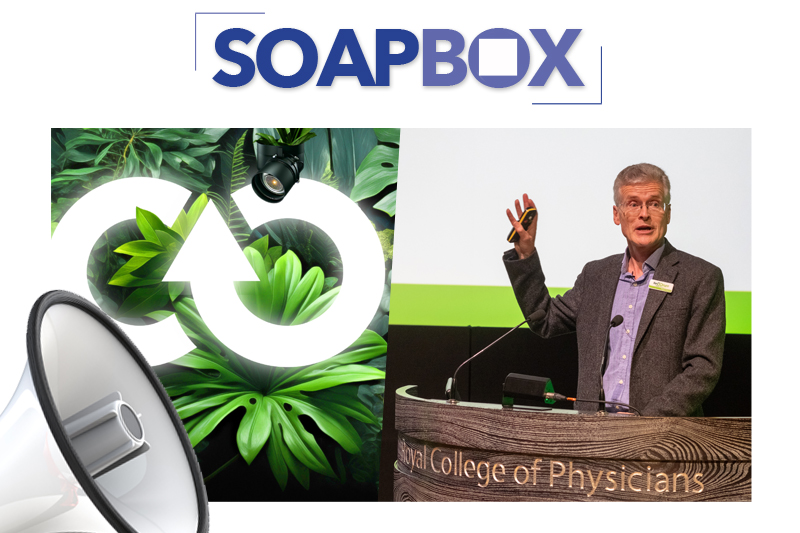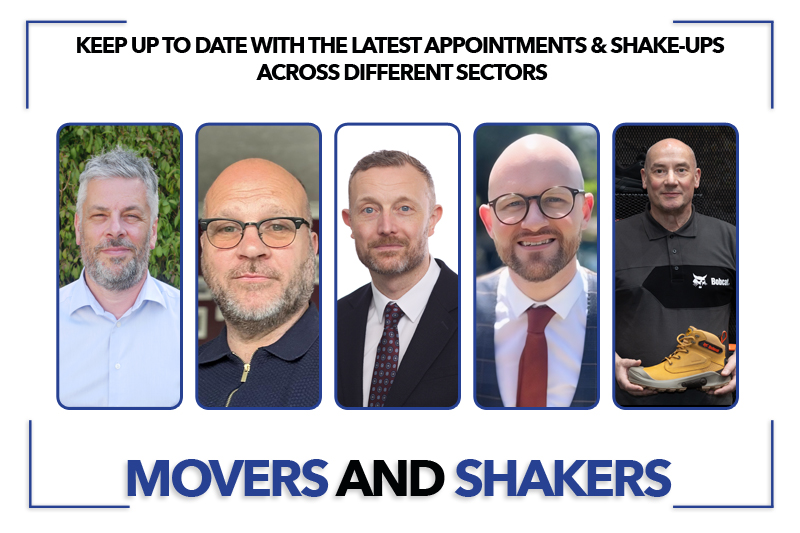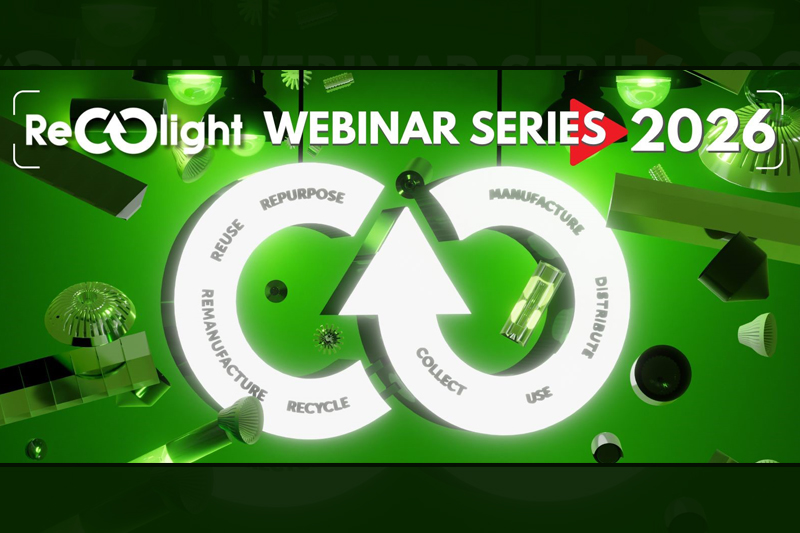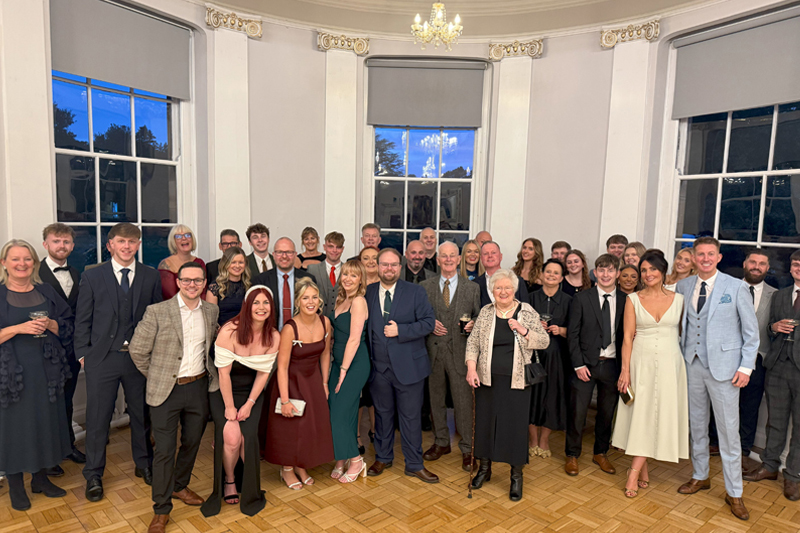Nigel Harvey, CEO of Recolight, explains why the circular economy for lighting is both a moral imperative and a commercial opportunity.
Much has been written about the transition to a circular economy – it is a vital response to the climate crisis, which reduces embodied carbon emissions, reduces waste and improves material efficiency.
And for those companies willing to act quickly and early, and to fully embrace a circular economy, there is also commercial opportunity. An increasing number of specifiers, lighting designers and even some public sector organisations are prioritising circular economy principles such as upgrade and remanufacture, over the purchase and installation of new product.
There is now a wealth of resources to find out how to capitalise on those opportunities, for all in the lighting supply chain – manufacturers, distributors and wholesalers, lighting designers and end users.
Circular Lighting Live – 9th October, London
An instant success on its debut in 2022, Circular Lighting Live has become the defining gathering of the lighting supply chain to identify how companies are changing and adapting their services to embrace circular economy principles.
A visit to Circular Lighting Live gives delegates the opportunity to hear from leading manufacturers and lighting specifiers/end users, as they reveal the transformation that is taking place at the heart of the industry. The one-day conference and exhibition is organised by Recolight, and chaired by Ray Molony.
Aimed at the full supply chain, including manufacturers, suppliers and specifiers, it takes place on Wednesday 9th October 2024 at the Royal College of Physicians in London.
The event brings together over 300 of the lighting industry’s top executives to show how leading organisations in our sector are becoming part of the circular economy.
On the agenda for 2024 is the legislative and regulatory landscape, new circular economy standards that will drive the industry, the role AI can play in assisting firms with data, the opportunities and challenges of the emerging lighting remanufacturing ‘ecosystem’, 3D printing, circular design and sustainable materials including bioplastics.
Speakers include Signify Chief Design Officer Ton Borsboom, who will explore if AI and digitalisation represents the next revolution in sustainable design, and Orms architect Rachel Hoolahan, who will explain how each luminaire is set to get its own materials ‘passport’.
For 2024, the organisers have a more expansive exhibition floor and included a dedicated track for lighting designers. In the Designer’s Track, lighting designer Paul Beale, founder of 18 Degrees, will share how a decision to salvage hundreds of office lights ignited a journey to forge connections throughout the industry. Exhibitors include ASD Lighting, BELL Lighting, Glamox, Holophane, Llumarlite, Regen Initiative, Signify and Stoane Lighting.
Recolight Reuse Hub
The Recolight Reuse Hub is a new lighting digital marketplace. It is an online platform to facilitate the donation of new and used lighting products and equipment. It is the first of its kind for the donation, reuse and remanufacture of lighting products.
Currently, there are considerable volumes of new and used lighting products that are needlessly recycled when they could be reused. The Recolight Reuse Hub allows donors of such products to link up with potential recipients: companies that could use the donated products.
Access to the Reuse Hub is open to any type of organisation, including manufacturers, remanufacturers, wholesalers and distributors, specifiers, end users, charities and more. Lighting producers that are not yet Members of the Recolight compliance scheme may also participate. Companies can register as Donors, Recipients, and Remanufacturers.
Donors can offer both unused, unsold lighting stock, and used but reusable lighting equipment that may be suitable for remanufacturing, including those from Cat A and fit-outs.
The Reuse Hub is currently free of charge for Donors, Recipients, and Remanufacturers. It includes a template agreement between both parties, that clearly limits the liability of donors, to de-risk the process.
Remanufacturing Lighting Equipment – one-day training workshop, 27th June, London
Businesses are increasingly asking for existing lighting products to be upgraded or remanufactured, rather than specifying new products. This trend is driven in part by the need to reduce the embodied carbon footprint of a building. Keeping the original luminaire, rather than replacing it, typically results in an embodied carbon saving of at least 50%. And with an increasing number of building owners and users now looking for net zero buildings, that saving has big impact.
As more organisations seek to put in place tangible plans to address their contribution to the climate crisis, reducing embodied carbon will become an ever more important element in purchasing criteria.
Remanufacture is also a great example of how to put circular economy principles into practice. Reusing the housing keeps those materials in use for a second life. It also avoids unnecessary recycling, which is itself an energy intensive process.
Remanufacturing Lighting Products is an in depth, face-to-face one day workshop. The first event took place in London on 27th June, presented by lighting product designer Simon Fisher, who also sits on the BSI lighting remanufacture committee. The workshop guided attendees through all aspects of setting up a remanufacturing service, including key design principles for the LED light source, compliance testing, and the use of the new BS8887:221 lighting remanufacture standard. The course may also be booked as an in-house, single company event.
FURTHER DETAILS ARE AVAILABLE AT HERE





